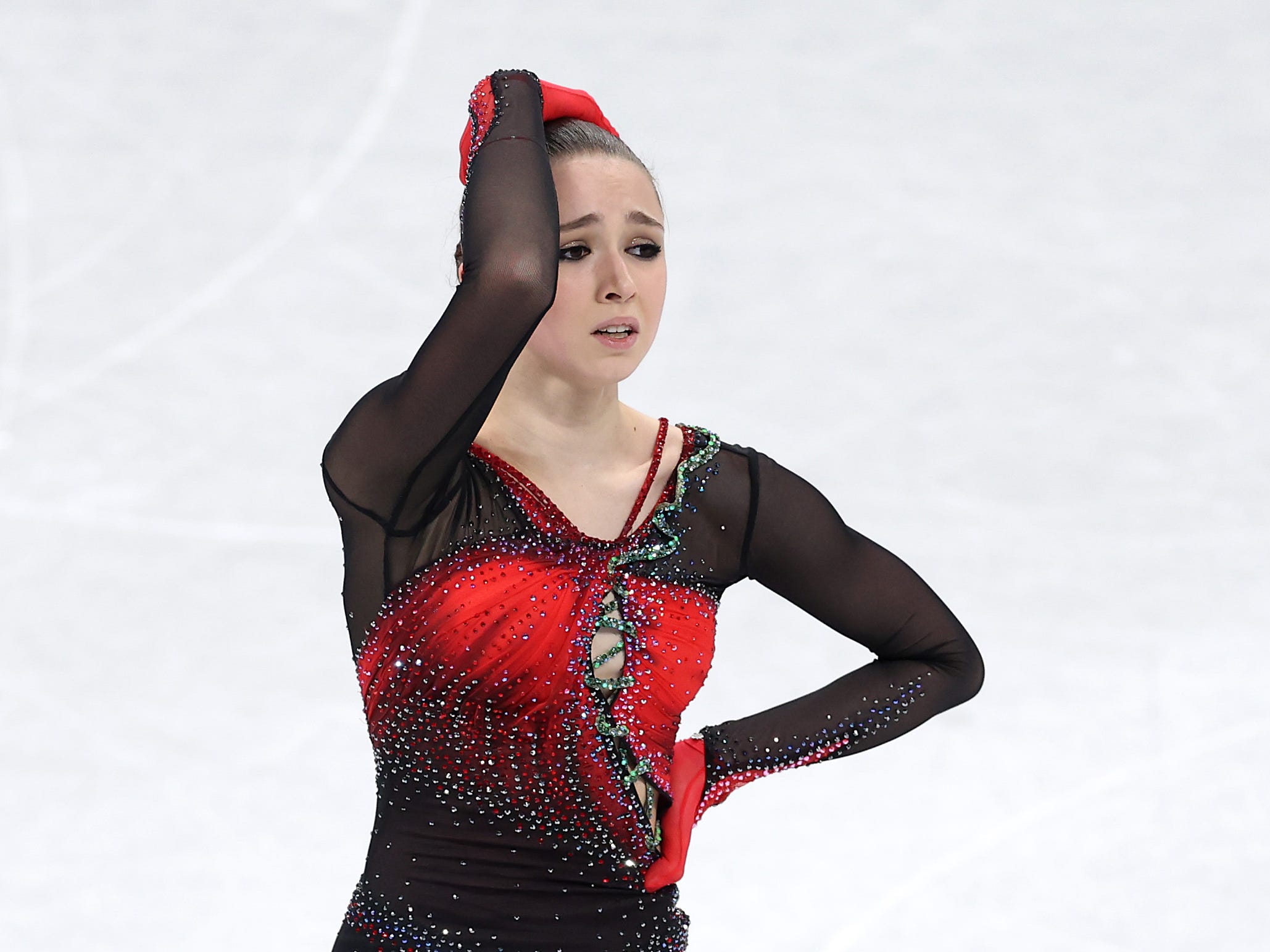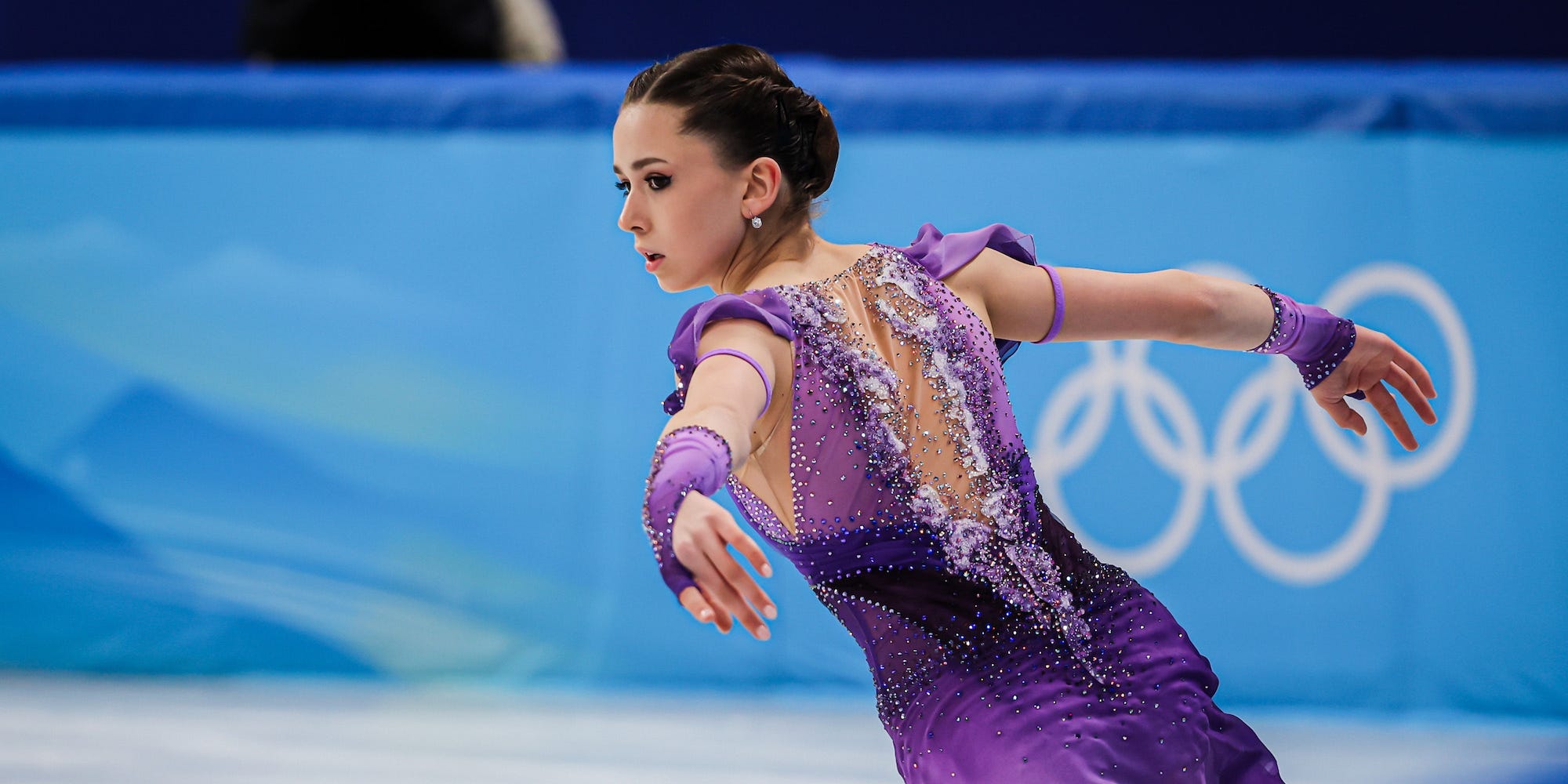
- Russian figure skater Kamila Valieva can keep competing at the Beijing Olympics, authorities said.
- 15-year-old Valieva failed a drug test in December, and was provisionally suspended from competing.
- The IOC said that if she finishes in the top 3 in her upcoming event, no medals will be handed out.
Kamila Valieva, the 15-year-old Russian skater at the center of an Olympic doping scandal, will not be allowed to receive a medal until her case is closed, even if she finishes in the top three of her next event, the International Olympic Committee said Monday.
The Court of Arbitration for Sport announced earlier in the day that it had lifted Valieva's provisional suspension, meaning she is allowed to continue competing, despite failing a drugs test in December.
Valieva was provisionally banned after testing positive for the prohibited substance trimetazidine, a medicine usually used to treat angina attacks, but also known to improve endurance in athletes.
While she can still compete at Beijing, she will not get a medal at the games should she, as is expected, finish in the top three in the women's individual event, the IOC said.
No medal ceremonies will be held should Valieva finish in the top three, it said, meaning that no one will get their medals until the matter is resolved after the games.
"Should Ms. Valieva finish amongst the top three competitors in the Women's Single Skating competition, no flower ceremony and no medal ceremony will take place during the Olympic Winter Games Beijing 2022," the IOC's statement said.

The IOC also said that Valieva and her Russian Olympic Committee teammates will not yet be presented with their gold medals for winning the team event during the opening weekend of the Olympics.
No medal ceremony will take place during the games for that event, the IOC said, meaning that the US and Japan, who finished second and third, will also have to wait for their medals. Canada, which finished fourth, would get bronze if the ROC was disqualified from the contest.
"In the interest of fairness to all athletes and the NOCs concerned, it would not be appropriate to hold the medal ceremony for the figure skating team event during the Olympic Winter Games Beijing 2022 as it would include an athlete who on the one hand has a positive A-sample, but whose violation of the anti-doping rules has not yet been established on the other hand.
Dit artikel is oorspronkelijk verschenen op z24.nl
